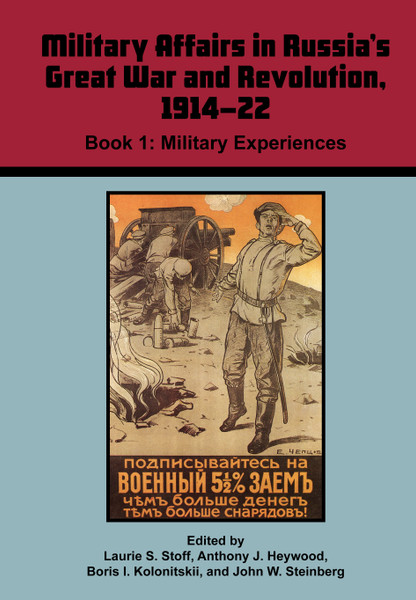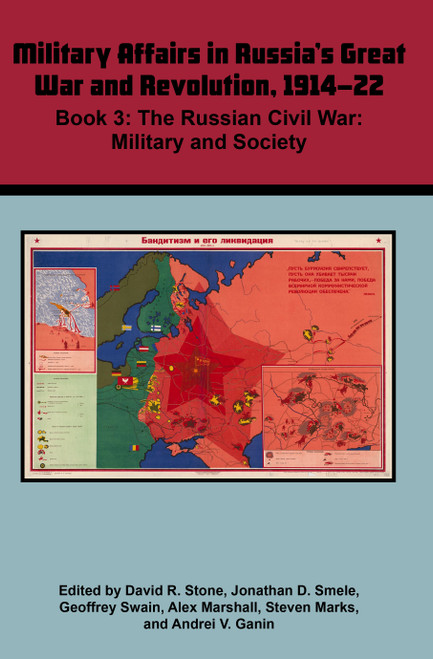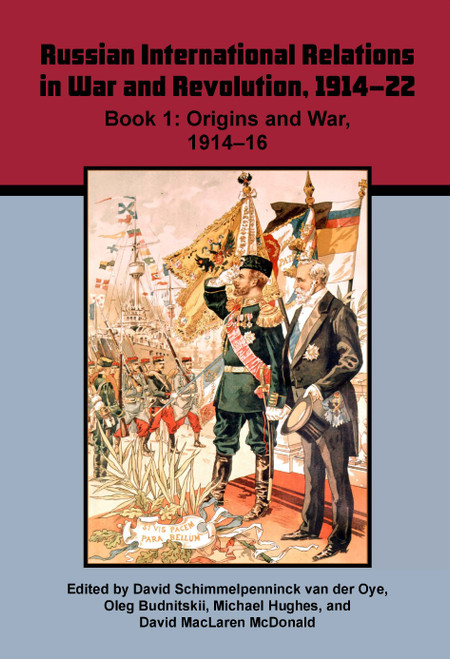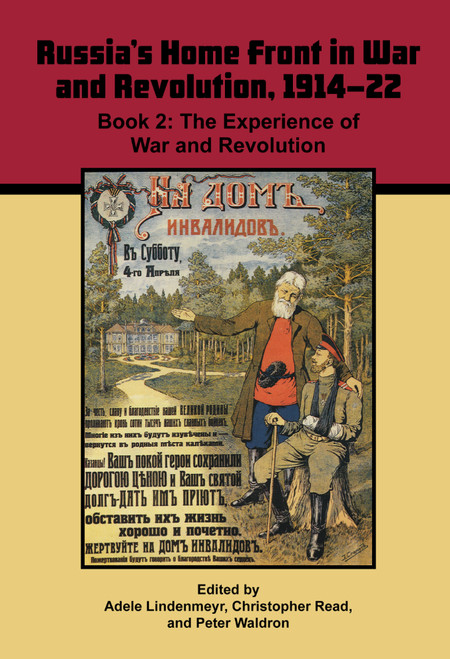Product Overview
This book—the first part of an entire volume about military affairs in Russia’s Great War and Revolution—is based on the premise that the military history of World War I in the Russian theater and the subsequent Civil War cannot be sufficiently understood by focusing exclusively on descriptions of war plans, strategy, and operations and that precisely because war is a human activity it is crucial to establish the place of humans in this military story. Moreover, this book interprets the notion of the military “front” very broadly, extending far beyond the lines of trenches and even beyond the army-controlled front zones. It was in all the vastly different circumstances where soldiers lived, fought, and died; it was where medical staffs worked around the clock to administer aid to the wounded; it was even in the POW camps. The common theme here is the military character of the experiences. Importantly, while Russia’s Great War did share many of the characteristics of the campaigns in Western Europe, it was also characterized by a host of important factors that were significantly different from the war experiences in Western Europe. Aside from the greater mobility and fluidity of the front, these other factors included time and space, nationality, religion, gender, the vast numbers of casualties, status, and politics. And that means that while this book seeks to add to the growing literature about Russia’s Great War and to a much lesser extent the Civil War by examining these types of theme through the prism of “human experiences,” it does not aim simply to mimic the existing studies of war experiences on the Western Front.
Steinberg, John W. et al., Introduction
https://doi.org/10.52500/WTIK8045
Alexandre Sumpf, The Russian Perception of “No Man’s Land” during the First World War
https://doi.org/10.52500/KSOY4864
Liisi Esse, Estonian Soldiers in World War I: A Distinctive Experience of a Small Nation in the Russian Army
https://doi.org/10.52500/FVIB2160
Oleg Budnitskii, Jews in the Russian Army during the First World War
https://doi.org/10.52500/AAYQ1093
Franziska Davies, Muslim Soldiers from the Volga-Ural Region in the Russian Army, 1914–February 1917
https://doi.org/10.52500/DLYH1695
Laurie S. Stoff, Russia’s Women Soldiers of the Great War
https://doi.org/10.52500/IMWF5172
Denis A. Bazhanov, Disciplining Baltic Fleet Sailors (1914–February 1917)
https://doi.org/10.52500/OSRT5647
Evgenii O. Naumov, Adaptation to Extreme Conditions: The Everyday Life of 1st Army Soldiers on the Red Army’s Eastern Front, 1918
https://doi.org/10.52500/MCKQ7879
Karen Petrone, “I Have Become a Stranger to Myself”: The Wartime Memoirs of Lev Naumovich Voitolovskii
https://doi.org/10.52500/EXCO1006
Paul Robinson, Coping with Command: Grand Duke Nikolai Nikolaevich at the Front
https://doi.org/10.52500/HPKY1776
Aleksandr B. Astashov, Russian Military Censorship during the First World War: The Experience of Control over Mood
https://doi.org/10.52500/SGAR6141
Laurie S. Stoff, Russia’s Sisters of Mercy of World War I: The Wartime Nursing Experience
https://doi.org/10.52500/DKVB4438
Dietrich Beyrau, Sermons, Rituals, and Miracles: The Russian Orthodox Clergy in WWI and Piety in the Trenches
https://doi.org/10.52500/CLRM8538
Anthony J. Heywood, The Militarization of Civilians in Tsarist Russia’s First World War: Railway Staff in the Army Front Zones
https://doi.org/10.52500/FVMP9692
Aleksandr B. Astashov, The “Other War” on the Eastern Front during the First World War: Fraternization and Making Peace with the Enemy
https://doi.org/10.52500/LOWT3802
Paul Simmons, Desertion in the Russian Army, 1914–17
https://doi.org/10.52500/WPQZ3406
Alexandre Sumpf, An Amputated Experience of War: Russian Disabled Soldiers in the Great War, 1914–18
https://doi.org/10.52500/EJWI1714
Oksana Nagornaia, Russian Prisoners of War in the First World War: The Camp Experience and Attempted Integration into Revolutionary Society (1914–22)
https://doi.org/10.52500/BZIQ5421
Julia Walleczek-Fritz, The Habsburg Empire’s Russian Prisoners of War and Their Experiences as Forced Laborers on the Austro-Hungarian Southwestern Front, 1915–18
https://doi.org/10.52500/OZAV7674
Matthias Egger and Christian Steppan, Captured and Forgotten? A Comparison of Russian and Austro-Hungarian Welfare Provision for Prisoners of War, 1914–18
https://doi.org/10.52500/SFRD2810
Boris I. Kolonitskii, Understanding the Kerenskii Offensive: Russian Revolutionary Military Propaganda and the Soldiers’ Motivation to Fight, April–June 1917
https://doi.org/10.52500/RSMO7625
Alexandre Sumpf, “Velikaia Boinia”: Death and Burials in the Front Zone, 1914–18
https://doi.org/10.52500/YOHP1891
William G. Rosenberg, Conclusion: Assessing the Frontline Experience and Its Implications
https://doi.org/10.52500/JYDE6096







